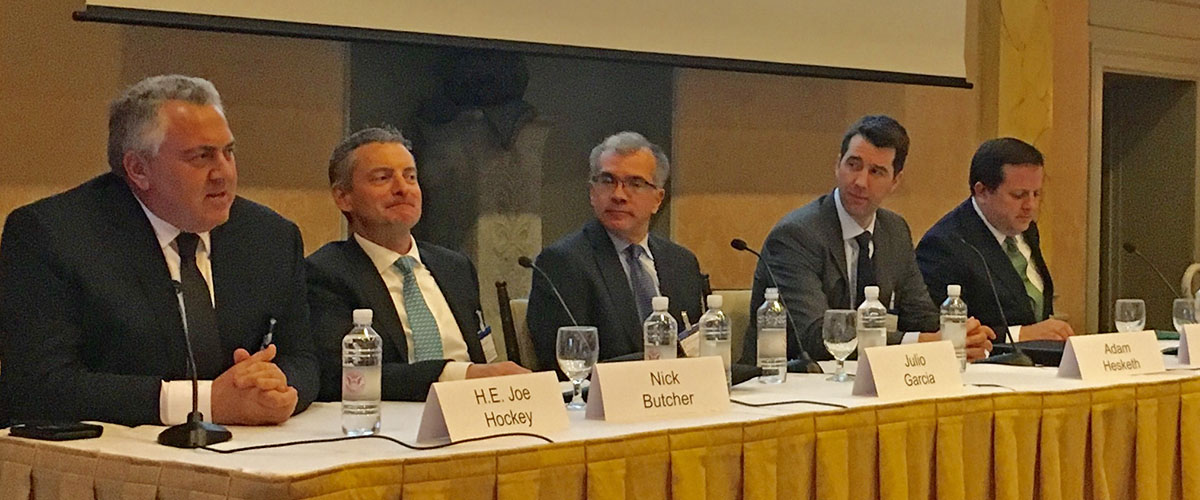Last week I had the opportunity to participate in an Infrastructure Week panel moderated by the Honorable Joe Hockey – Australia’s Ambassador to the United States – at the P3 Policy and Delivery Leaders Forum.
The Ambassador offered a sobering reminder: the U.S. must tackle a $3.8 trillion infrastructure investment shortfall before the nation’s economic competitiveness degrades. Finding funding for trillions of dollars may seem like an insurmountable challenge. Policymakers have been debating solutions year after year – raising the fuel tax, the fate of federal loan programs and the role of the private sector. In fact, just days after Infrastructure Week we witnessed the breakdown of another unfilled, bipartisan pledge to invest and rebuild.
Yet, there’s one solution that has been underrepresented in the Federal dialogue: Asset Recycling. What it lacks in brand power here in the U.S., Asset Recycling makes up for in potential as a funding solution. It works like this:
Existing public infrastructure is leased (not sold) to the private sector under regulated operating contracts. In exchange, payments are made to the state to support reinvestment into the delivery of new modern infrastructure or other public needs.
The outcomes are almost universally positive, and the benefits far reaching.
On roads alone, these PPP transactions have the potential to materially reduce toll prices for customers, better regulate future price increases, reduce congestion and provide a long-term, binding commitment to users that infrastructure will be maintained to high standards – meaning no pothole-riddled lanes. Typically, there is also a multi-billion dollar payment that states can spend on new projects for their taxpayers.
And this program don’t just deliver infrastructure improvements and user benefits, it also stimulates regional economic growth and employment, while generating future tax revenue for the governments.
Transurban has long advocated for government to consider this as one tool, of many approaches, to help rebuild U.S. infrastructure. Our notable experience includes the recent WestConnex sale in Sydney, Australia where we led a consortium that paid US$6.5 billion for 51% of a number of toll road assets. In this specific model, the NSW Government initiated the construction itself with a pre-planned Asset Recycling plan after de-risking the project.
So we can rename this solution the “Toll Reduction Program” or the “Asset Enhancement Program” or get the brand experts involved to better market the true potential. In the meantime, as we look back on the important dialogue of Infrastructure Week, let’s refocus on real solutions that have the potential to generate hundreds of billions of dollars to help build tomorrow’s modern infrastructure.

